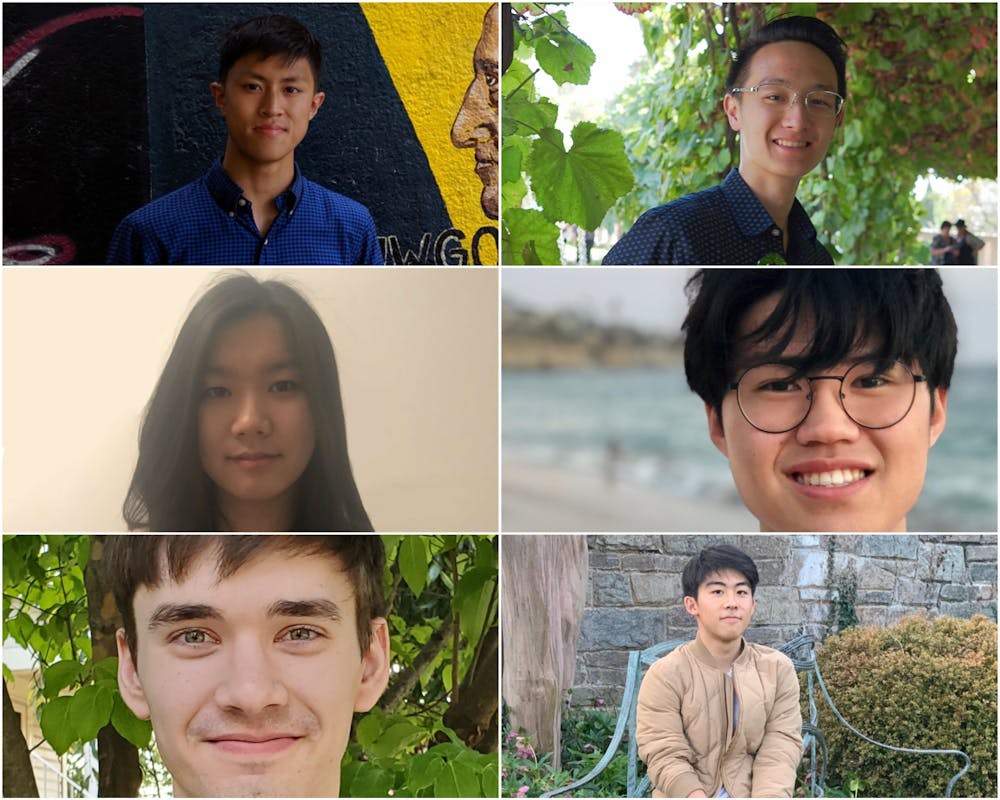With students taking classes remotely this semester, opportunities to meet other students are scarce. Four Penn students have responded to this dilemma, creating an app where students can "match" with other students and form virtual friendships.
Berri, which launched on Monday, allows Penn students to create a profile with an alias and no picture and swipe through other anonymous profiles, which features information such as the user's major, classes, and hobbies. Once users have created a "match" by swiping right on each other, they can send messages to each other and identify themselves if they wish.
The app has garnered over 1,000 profiles since Aug. 29, when they began allowing students to create them before the official launch. First years make up 60% of users, while sophomores currently make up 30%. The remaining 10% is split among juniors, seniors, and first years taking a gap year, Engineering sophomore and Berri co-founder Patrick Liu said.
Liu worked with fellow Penn students including College sophomores Justin Ma and Rikuya Takatsu and Wharton sophomore Angelina Pan as well as students from other universities including University of California Los Angeles sophomore James Tseng and University of Maryland sophomore Eugene Domrachev to create the app. The team of six spent over two and a half months this summer developing the app, Ma said.
While the app is currently only accessible through a web browser, the team plans to push out a mobile app of Berri next month.
When creating a Berri profile, users are asked to enter their major, classes they are currently taking, class year, and interests and hobbies. Users are also asked to select a background for their profile card, customize a fruit for their profile picture, select an adjective and fruit for their profile name, and answer personality questions.

Berri is currently only available on desktop. (Photo from Berri team)
Liu said the team's decision to make users anonymous on Berri was inspired by Reddit, a network of communities based on people's interests. He believes because most Reddit users choose not to reveal their identities, the widespread anonymity encourages users to be more genuine, a point of contention on other social media platforms such as Instagram and dating app Tinder. The team wanted to differentiate Berri from Tinder by not having pictures attached to users’ profiles, hoping to discourage students from forming friendships based on physical appearance.
RELATED:
Wharton MBA graduate develops app that rewards you for safe driving
Penn alum creates app for users to track number of spotted lanternfly kills
“We hope that with the anonymity feature, we can help people find people they might have otherwise not ever met,” Pan said.
He added that Berri, unlike Tinder, is intended for users to form friendships as opposed to romantic relationships.
Takatsu said the profile suggestion algorithm is based on a scoring system representing the number of similarities between two profiles. The app also takes into account the user’s class year and undergraduate school, which is determined by the Penn email address used to create the account, when suggesting profiles to the user. Takatsu added that a user who has swiped right on a profile will appear near the beginning of that user’s queue to increase chances of a "match."
“When you start swiping on people, those with higher scores will show up first, so that increases the chances of matching with each other, because they’ll have more shared classes and interests,” he said.
Ma said he first reached out to Liu over the summer because he felt bored and wanted to work on a project to help students have a more enjoyable college experience in quarantine. Liu came up with the concept for the app, which he said was inspired by his own experience making friends at Penn.
Liu met Ma at 1920 Commons during their first years when they did not have anyone else to sit with. Considering how students, particularly first years, will not have this kind of opportunity to meet friends organically this semester, Liu decided the app should help form friendships within the virtual community.
While Berri is currently only available to Penn students, Domrachev said they plan to expand the service to other campuses starting with the University of Maryland next week. He added Berri could potentially offer its services to any college, as long as the team has access to information such as the majors and classes offered.
Domrachev said, however, students will only be able to match with users from the same university to encourage friend-making amongst classmates.
College sophomore Mark Wasuwanich said he was initially drawn to the cute graphics that make up the app’s interface when students were promoting the app on social media. He added he has enjoyed the app since its launch and gotten phone numbers of the people he matched with to continue contacting them outside the scope of the app. Wasuwanich said he plans to meet them in person when they are back on campus.
College first year Dangela Fonseca praised the app's suggested profile algorithm and likes how it suggests profiles based on class year. As a first year taking classes from her home this semester, she said she has not had many opportunities to meet other first years and appreciates how the app is making it much easier for her to do so.
“It’s ‘berry’ cute," Fonseca said.
Fonseca said she hopes a mobile version of the app will be created in the future, so she can continue her conversations with the users she has matched with on-the-go.
“It’s motivating to know we are going to help at least some people and that we got a learning experience out of it,” Domrachev said.









